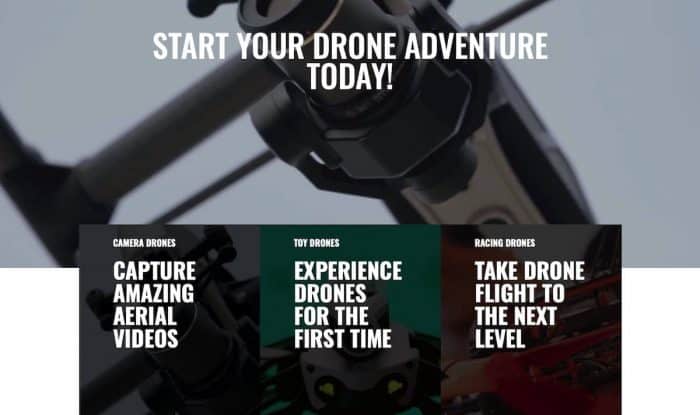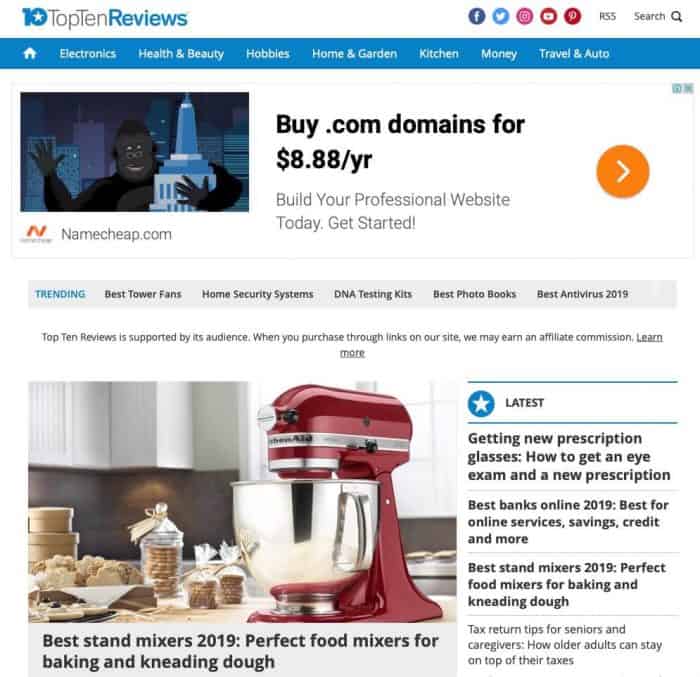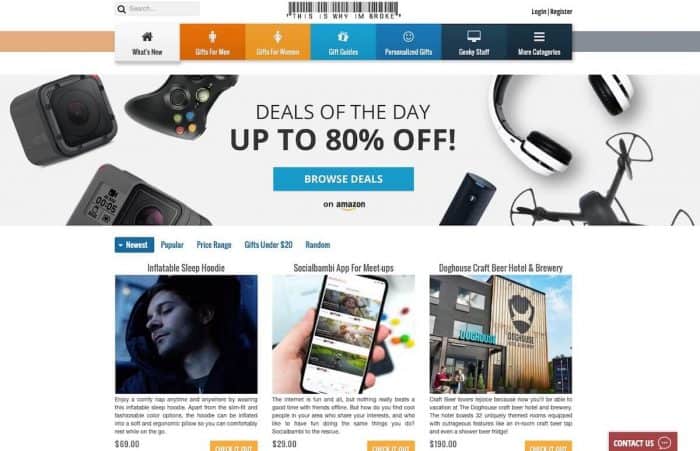This month we spoke with affiliate SEO Josh Bruce to discuss some of the best types of affiliate websites and the pros and cons of each method.
Affiliate marketing is the process of promoting other people’s products on your website and earning a commission once a purchase is completed.
Affiliate marketing can have low overhead and low start-up costs, which makes it an attractive proposition for people looking for a side-hustle or venturing into the world of digital marketing. If you’re writing all the content yourself, then the major cost will be your hours spent writing articles. This makes it an appealing way to try and make some extra money in your spare time. The passive nature of this income also allows website owners to scale more easily, with $10,000 a month profit being an achievable goal.
There are many different affiliate schemes and ways to monetize your website, with Amazon Associates being one of the most popular. There are also different styles of affiliate websites, from fashion blogs, to “top 10” websites and shop style websites. We’ve listed some of the most popular types of affiliate websites that you can find and set up yourself.
Table of Contents
1. Blogger Website
Niche blogs with affiliate links are a popular way for bloggers to monetize their websites. This is particularly popular with fashion and lifestyle bloggers (check out my favorites here), who will promote certain products and receive affiliate commissions on their purchases.
A good example of this is: https://sincerelyjules.com/

This blogger shows off their favorite fashion picks and then offers the readers a chance to buy these items by clicking on affiliate links. Offering affiliate links for the clothes you’re modeling is a great way for any bloggers with a social media following to make more money from their blog. Often, they won’t receive traffic through SEO so it will rely on having great photography to make products look amazing and have loyal social media following that will engage with their posts.
This has become a much more competitive niche in the past few years, with thousands of fashion bloggers taking to Instagram, trying to get noticed. This typically won’t make you enough money to quit your day job but is a good way to add extra income.
Pros
- Easy to add extra income if you already have a social media following
- Don’t need to invest in paid advertising or SEO
- Can write a post about your real interests
Cons
- Hard to get high numbers of conversions
- Relies on great photography
- Need to build up a social media following
2. Niche Expert
A niche expert website is an affiliate website that will offer how-to guides and buyers guides in a particular niche.
A good example of this is: https://myfirstdrone.com/

These are often run by groups of friends who work in a particular field and have the combined resources to write lots of articles about a particular topic.
To make a successful niche website, you need to be an expert in the industry (not the best, but you need to know your stuff). The audience of these websites is often people who have some knowledge of the industry, so you’ll get called out pretty quickly if you’re writing incorrect or misleading information.
You can set up this type of affiliate website even if you don’t already have knowledge of the niche. If you find a niche that has low competition keywords, you can conduct research about the niche and set up your own website. After your research, your goal should be to genuinely become an expert in the industry and to write top quality content.
There are a lot of bad examples of niche websites where cheap content is paid for alongside basic onsite SEO optimization. Whilst these are good for driving traffic to your website, their poor content will generally result in low conversion rates and no loyal following being generated.
Pros
- Can find low competition niches to generate lots of SEO traffic
- Can be a fun project to undertake as a group with similar interests
Cons
- Boring if you’re working in a niche that doesn’t interest you
- Requires many hours of research if you’re not already an expert
3. All-niche Top 10 Website
The all-niche top 10 websites will write buyers guides for literally any niche. They revolve around posting articles that list the “top 10” of a particular type of product. Lists are very popular and show a clear distinction between the best and worst products so tend to be good at converting.
A good example of this is: https://www.toptenreviews.com

If the website design looks premium and has top quality content, you can create a trustworthy source of information that people will visit time and time again when researching products.
The problem with this is that the websites need to have a huge amount of resources invested before it can become a trusted authority resource. The existing top 10 roundup websites already have a lot of authority behind them with a huge number of articles and it will be very tough to compete with these.
Pros
- Only need to focus on one affiliate website
- Once the website become an authority is can be easy to rank pages in lots of niches
Cons
- Hard to build up website authority and get SEO traffic
- Copy needs to be compelling to prove your expertise
- Initially won’t appear as an expert so won’t have trust
4. This Is Why I’m Broke
This Is Why I’m Broke (aka TIWIB) is a popular shop-style website where users can browse interesting products to find cool and unique gifts.
You can visit the website here: https://www.thisiswhyimbroke.com

They focus on merging a great user experience and quality product photos to make the website engaging and easy to navigate. Features such as infinite scrolling and a range of product categories make the website easy to browse until you find a product you like.
TIWIB participates in a wide range of affiliate schemes, and even offer products that they don’t receive commissions on if they’re interesting enough.
Over the past few years, there have been many similar websites that have copied TIWIB, but none have managed to steal a significant market share. TIWIB still has the best user experience and design which allows them to still be the most popular website of this style.
Pros
- No need to write thousands of words of content.
- Looks stylish and fairly easy to set up
- Don’t need to be an expert in a particular field
Cons
- Limited content means it will be hard to rank on Google so requires other means of driving traffic to the website
- May not comply with some affiliate terms and conditions. Check affiliate terms and conditions to see if you comply. Affiliate schemes like amazon have strict rules about content requirements, so you’ll need to either have a custom agreement or use other affiliate schemes.
5. Review Website
Review websites focus on reviewing different products to show their suitability. A review website will typically have multiple pages specifically set up for individual products.
A good example of this is: https://www.techradar.com

These product reviews will be content-rich with lots of photos of the product to give the reader confidence in buying the product.
Review websites that do well are often accompanied by videos that show the unpacking of the product, followed by testing it.
This is a great way to set you up as an expert in the industry. You do not actually need to have physically touched a product to set up a product review site, however, the best in the industry will do this.
Poor examples of review websites will simply regurgitate the product information listed on the manufacturer’s website, without adding any of their own analysis.
If you’re reviewing a product that has a lot of technical specifications, make sure you get this information right. Often Amazon will have incorrect specifications on their listings to check with the original manufacturers. Misleading information will result in readers calling you out for presenting misinformation and could risk a ban from the affiliate scheme.
Pros
- Can result in high conversion rates as readers are usually at the buying stage
- Hard to create unique content
Cons
- May need to invest in the real product, resulting in a high barrier to entry
- Hard to build a social following
Conclusion
I hope this quick list of affiliate website examples is useful to understand the different models available to make money. Setting up an affiliate website is a long-term investment. It’s hard work and you’ll find it very boring if you don’t like writing content, however, there are potentially great rewards.
Fortunately, there are loads of great articles on the internet that can teach you digital marketing, the basics of onsite SEO, backlinking, WordPress, and basic HTML skills. Anyone can set up an affiliate website, please let us know if you’ve had success with affiliate websites and your journey.


